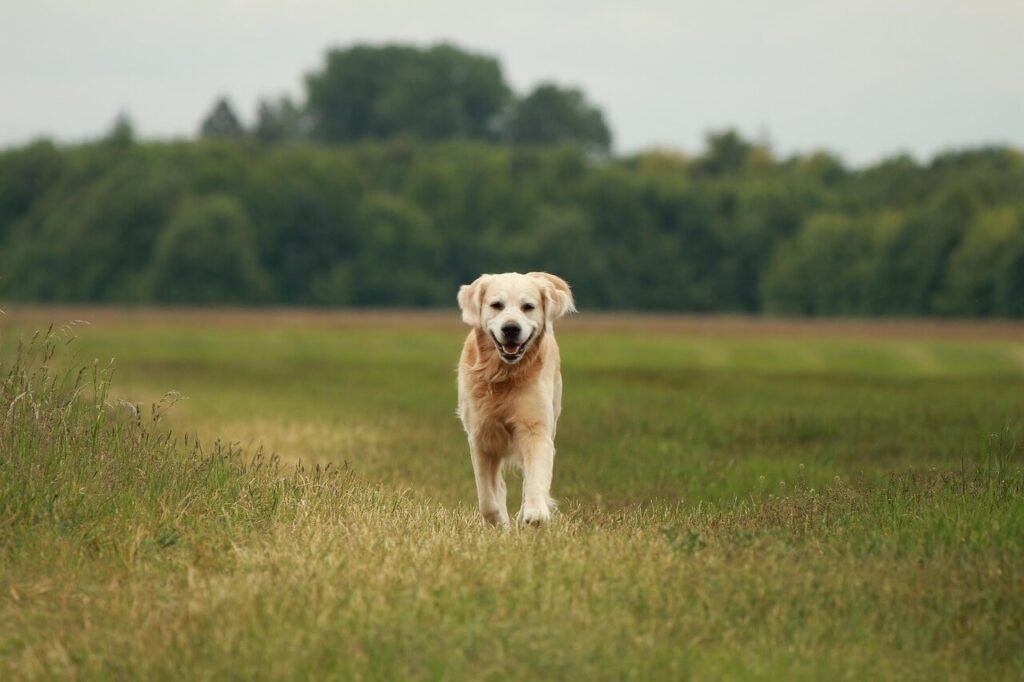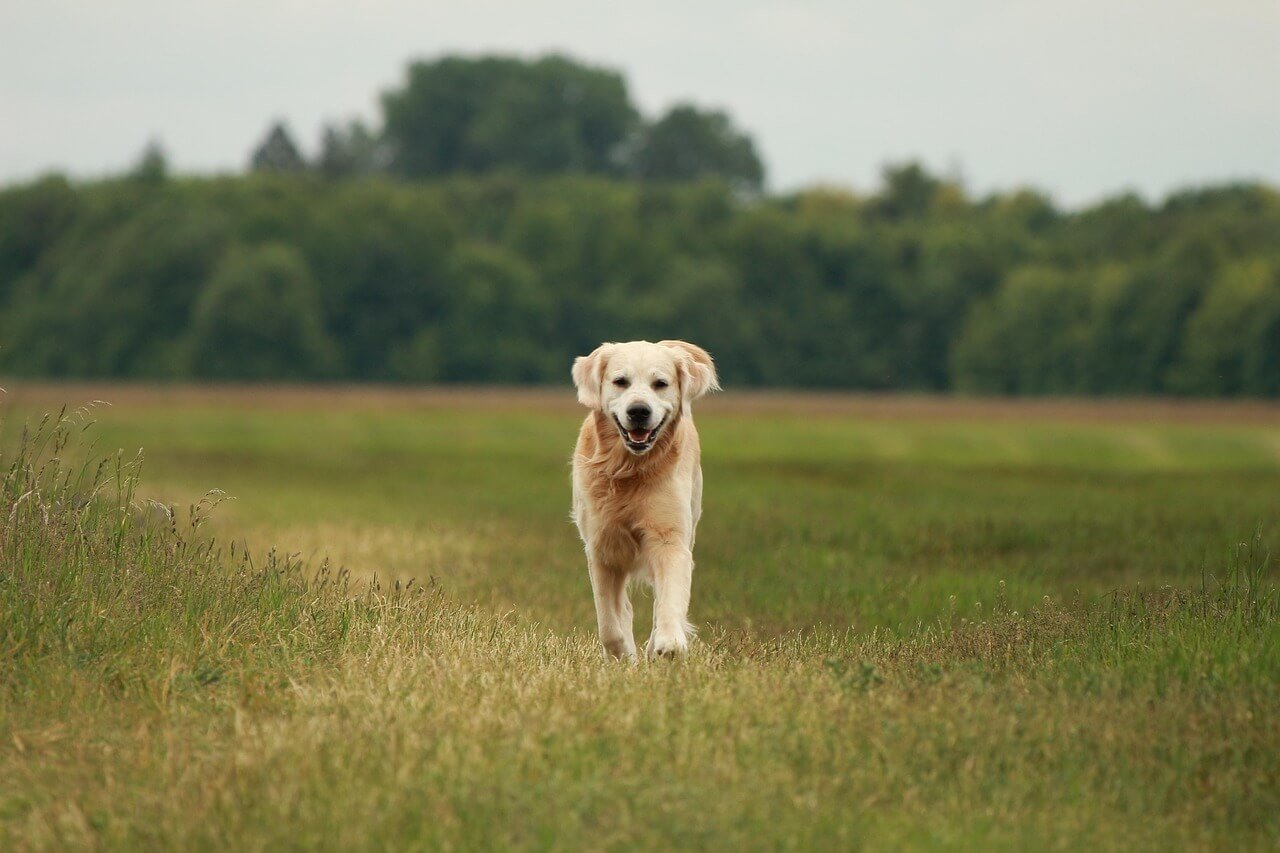Stop Your Dog from Digging
Few things are as frustrating for dog owners as discovering their backyard resembles a construction site. Whether your dog is digging holes in the garden, under the fence, or right in the middle of your flower bed, this behavior can feel overwhelming. But why do dogs dig, and how can you stop them? Understanding the root causes of digging—whether it’s boredom, instinct, or anxiety—is the first step toward addressing the issue. With patience, training, and a few practical strategies, you can curb this behavior and restore peace to your yard. Let’s explore expert tips and techniques to stop your dog from digging once and for all.
Why Do Dogs Dig? Common Reasons Behind the Behavior
Before tackling the problem, it’s important to understand why your dog feels the need to dig. Identifying the underlying cause will help you address the behavior effectively.
Boredom and Lack of Stimulation:
Dogs often dig when they’re bored or understimulated. Without adequate mental and physical exercise, digging becomes an outlet for pent-up energy.Instinctual Behavior:
Some breeds, like terriers and hounds, have a natural instinct to dig. This behavior was historically used for hunting or finding prey underground.Comfort and Shelter:
Dogs may dig to create a cool spot to lie in during hot weather or a warm nest during colder months.Anxiety or Stress:
Separation anxiety or fear can drive dogs to dig as a coping mechanism. The act provides temporary relief from emotional distress.Attention-Seeking Behavior:
If your dog feels neglected, they may dig to get your attention—even if it’s negative attention.
By pinpointing the reason behind your dog’s digging, you can tailor your approach to address the specific need driving the behavior.

How to Stop Your Dog from Digging: Practical Tips
Once you’ve identified why your dog is digging, you can implement strategies to redirect or eliminate the behavior. These actionable tips will help you reclaim your yard and keep your dog happy.
Provide Sufficient Exercise:
Ensure your dog gets plenty of physical activity through walks, playtime, and interactive games. A tired dog is less likely to dig out of boredom.Create a Designated Digging Area:
Set aside a specific spot in your yard where digging is allowed. Bury toys or treats there to encourage your dog to dig only in that area.Use Positive Reinforcement:
Reward your dog with praise or treats when they avoid digging in off-limits areas. Positive reinforcement encourages good behavior over time.Supervise Outdoor Time:
Keep an eye on your dog while they’re outside. If you catch them digging, redirect their attention to a toy or activity immediately.Address Anxiety Issues:
If your dog digs due to stress or separation anxiety, consult a professional trainer or veterinarian for guidance on managing their emotions.
With consistent effort, these strategies can help reduce—and even eliminate—your dog’s unwanted digging habits.
Check this guide 👉Why Do Dogs Dig Holes? Best 7 Expert Tips!
Check this guide 👉Why Does My Dog Dig Up Roots and Eat Them? Best 7 Tips!
Check this guide 👉Dog Digging Under Fence Solutions: Best 7 Expert Tips!
Preventive Measures | Training Techniques |
|---|---|
Provide daily exercise and enrichment | Use positive reinforcement for good behavior |
Fence off vulnerable garden areas | Teach commands like “leave it” or “stay” |
Rotate toys to maintain interest | Redirect digging to designated spots |
Block access to favorite digging zones | Reward calm behavior outdoors |
Address underlying health concerns | Practice short, supervised outdoor sessions |
Environmental Modifications to Discourage Digging
Sometimes, simple changes to your dog’s environment can discourage digging without requiring extensive training. These modifications focus on making the yard less appealing for excavation.
Install Fencing Barriers:
Add chicken wire or rocks along the base of fences to prevent your dog from digging underneath.Use Deterrents:
Sprinkle citrus peels or vinegar near areas where your dog frequently digs. Many dogs dislike these scents and will avoid the spots.Fill Holes with Unpleasant Textures:
Place gravel, sand, or pine cones in existing holes to make them less inviting for future digging attempts.Cover Exposed Soil:
Lay down mulch, decorative stones, or ground cover plants to reduce opportunities for digging.Remove Buried Objects:
Check for buried bones, toys, or other items that might tempt your dog to dig repeatedly in the same spot.
Making these adjustments can significantly reduce your dog’s urge to dig by altering their surroundings.
Fun Alternatives to Redirect Digging Energy
Instead of punishing your dog for digging, channel their energy into fun, constructive activities. Providing alternative outlets ensures they stay entertained without destroying your yard.
Interactive Toys:
Puzzle feeders and treat-dispensing toys engage your dog’s mind and provide hours of entertainment.Agility Training:
Enroll your dog in agility classes or set up a mini course at home to challenge their body and mind.Fetch Games:
Regular fetch sessions burn excess energy and satisfy your dog’s need for movement and play.Scent Work Activities:
Hide treats around the yard or house for your dog to find, tapping into their natural hunting instincts.Swimming or Water Play:
If your dog enjoys water, swimming can be an excellent way to tire them out while keeping them cool.
Redirecting your dog’s energy into productive activities not only stops digging but also strengthens your bond.
Signs Your Dog’s Digging Is Linked to Health Issues
While most digging stems from behavioral or environmental factors, certain health issues could contribute to excessive digging. Recognizing these signs ensures your dog receives proper care.
Skin Irritation or Allergies:
Dogs may dig to relieve itching caused by allergies or skin conditions. Look for redness, flakiness, or constant licking.Parasites Like Fleas or Ticks:
Infestations can cause discomfort, prompting your dog to dig in search of relief.Pain or Discomfort:
Joint pain or other ailments might lead to digging as a form of self-soothing.Nutritional Deficiencies:
Lack of essential nutrients can sometimes trigger unusual behaviors, including digging.Cognitive Decline in Senior Dogs:
Older dogs experiencing cognitive dysfunction may exhibit repetitive behaviors like digging.
If you suspect a health-related cause, consult your veterinarian to rule out underlying problems.
The Role of Breed-Specific Traits in Digging Behavior
Certain breeds are genetically predisposed to dig due to their historical roles. Understanding these traits helps manage expectations and tailor solutions.
Terriers:
Originally bred to hunt rodents, terriers have a natural instinct to dig tunnels and burrows.Hounds:
Scent hounds may dig to uncover smells or follow trails left by animals.Herding Breeds:
While less common, herding dogs may dig out of frustration if they lack sufficient mental stimulation.Arctic Breeds (e.g., Huskies):
These dogs dig to create cool resting spots in warm weather, mimicking their ancestors’ survival tactics.Mixed Breeds:
Mixed-breed dogs may inherit digging tendencies from one or more parent breeds.
Recognizing breed-specific traits allows you to develop targeted strategies for managing digging behavior.
Creative Ways to Make Yard Time More Engaging
Keeping your dog engaged during outdoor time reduces the likelihood of digging by fulfilling their need for exploration and adventure.
Set Up a Snuffle Mat:
A snuffle mat encourages foraging behavior, keeping your dog mentally stimulated while outdoors.Build a Sensory Garden:
Plant safe, non-toxic herbs and flowers that appeal to your dog’s senses, offering a new way to interact with the environment.Introduce Water Features:
A small splash pool or fountain provides endless entertainment and cools your dog on hot days.Teach New Tricks Outside:
Use yard time to teach tricks or practice obedience commands, turning training into a fun bonding experience.Organize Playdates:
Invite another friendly dog over for supervised playtime, which tires out your pup and reduces destructive behaviors.
Engaging your dog in creative ways ensures they look forward to yard time without resorting to digging.
Frequently Asked Questions About Stopping Dogs from Digging
Is digging always a bad behavior?
Not necessarily. Digging is a natural instinct for many dogs, but it becomes problematic when it damages property or disrupts routines.
How long does it take to stop a dog from digging?
The timeline varies depending on the dog and the method used. Consistent training and environmental changes usually show results within a few weeks.
Can certain breeds dig more than others?
Yes, breeds like terriers and hounds are more prone to digging due to their hunting instincts.
Should I punish my dog for digging?
Punishment is generally ineffective and can harm your relationship. Positive reinforcement is a better approach.
What if my dog digs out of boredom?
Increase physical activity and mental stimulation through play, training sessions, or puzzle toys.
Restoring Harmony to Your Yard and Home
Stopping your dog from digging requires understanding, patience, and a combination of environmental, behavioral, and training strategies. By addressing the root cause of the behavior and providing alternative outlets for their energy, you can transform your yard from a digging zone into a peaceful retreat. Remember, consistency is key—celebrate small victories and remain committed to reinforcing positive behaviors. With time and effort, you’ll enjoy a harmonious outdoor space that both you and your furry friend can appreciate.
How Cats Develop Lymphoma: Best 7 Expert Tips! – Learn about causes, symptoms, and prevention to protect your cat from this common cancer.
How Dogs Develop Lymphoma: Best 7 Expert Tips! – Learn causes, symptoms, and prevention strategies to protect your dog from this common cancer.
Diphenhydramine Safe for Dogs? Best 7 Expert Tips! – Learn proper dosing, uses, and precautions to keep your dog safe while using Benadryl.
Is Milk in Cat Food Safe? Best 7 Expert Tips! – Discover the truth about milk in cat food, its risks, and how to keep your feline healthy and happy.





